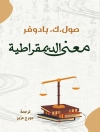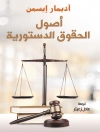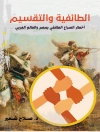In this unique edited collection, social scientists reflect upon and openly share insights gathered from researching people and the sea. Understanding how people use, relate to and interact with coastal and marine environments has never been more important, with social scientists having an increasingly vital contribution to make. Yet practical experiences in deploying social science approaches in this field are typically hidden away in field notes and unpublished doctoral manuscripts, with the opportunity for shared learning that comes from doing research often missed. There is a need for reflection on how social science knowledge is produced.
This collection presents experiences from the field, its necessary reflexivity and innovation in methods, and the challenges and opportunities of translating across disciplines and policy. It brings to light the tacit expertise needed to study people and the sea and offers lessons which readerscould employ in their own research. With a focus on the future direction of marine social sciences, the volume is highly relevant to masters and doctoral students and more experienced researchers engaged in studying people and the sea, as well as policy makers, practitioners and scientists wishing to understand the social dimension of marine and coastal environments.
Chapters 2 and 3 are available open access under a Creative Commons Attribution 4.0 International License via link.springer.com.
Tabla de materias
Part I Introduction.- 1. Researching People and the Sea – Setting the Scene; Carole S. White, Madeleine Gustavsson, Jeremy Phillipson, Kristen Ounanian.- Part II Experiences from the field: adapting methods, practices and reflexivity.- 2. Naked Methodology: Baring it all for a realistic account of marine social science; Kristen Ounanian.- 3. Attending to the rhythms of the sea, place and gendered cultures in interviewing fishers and fishing families; Madeleine Gustavsson.- 4. Towards an ethic of care within fisheries social research; Natalie Ross.- 5. Safety, ethics and trust: reflecting on methodological challenges in fisheries research; Hannah Chiswell, Julie Urquhart, Nick Lewis, Jasmine Black, Paul Courtney and Matt Reed.- Part III Windows into particular methods: innovations and traditions.- 6. Addressing low rates of attendance within fisher focus groups: reflections from inshore fisheries research in England; Rebecca Korda, Tim Gray, Dot Kirk-Adams and Selina Stead.- 7. Exploring the relationship between local ecological knowledge and technology through participant observation onboard fishing vessels; Jeremy Anbleyth-Evans.- 8. Ecosystems, communities and canoes: Using Photovoice to understand relationships among coastal environments and social wellbeing; Ana Carolina Esteves Dias and Derek Armitage.- 9. Using photographs in coastal research and engagement: reflections on two case studies; Merryn Thomas, Erin Roberts, Nick Pidgeon, Karen Henwood.- 10. Applications of archival sources and historical methodologies in interdisciplinary coastal and marine research; Alanna Casey.- Part IV Translating across disciplines and policy.- 11. Integrating social and ecological research on the impacts of offshore wind farms in North America; Talya ten Brink, Tracey Dalton, Julia Livermore.- 12. Imagining the coast: A mixed methods approach to elicit perceptions and conflicts on the west coast of Ireland; Maria Pafi, Wesley Flannery and Brendan Murtagh.- 13. Blending environmental humanities and policy studies: a narrative analysis approach to hybrid scholarship on the coast; Anna S Antonova.- 14. Reflections on methodological tensions in doing qualitative research at the science-policy-community interface; Ruth Brennan.- Part V Conclusion.- 15. Discerning expertise in researching people and the sea; Kristen Ounanian, Jeremy Phillipson, Madeleine Gustavsson, Carole S. White.
Sobre el autor
Madeleine Gustavsson is a researcher at Ruralis – Institute for Rural and Regional Research in Trondheim, Norway.
Carole White is a research fellow in the Global Environmental Justice Group at the University of East Anglia, UK, and a Senior Social Researcher at the UK Government Department for the Environment, Food and Rural Affairs
Jeremy Phillipson is Professor of Rural Development at the Centre for Rural Economy at Newcastle University, UK.
Kristen Ounanian is an associate professor at Centre for Blue Governance at Aalborg University, Denmark.












